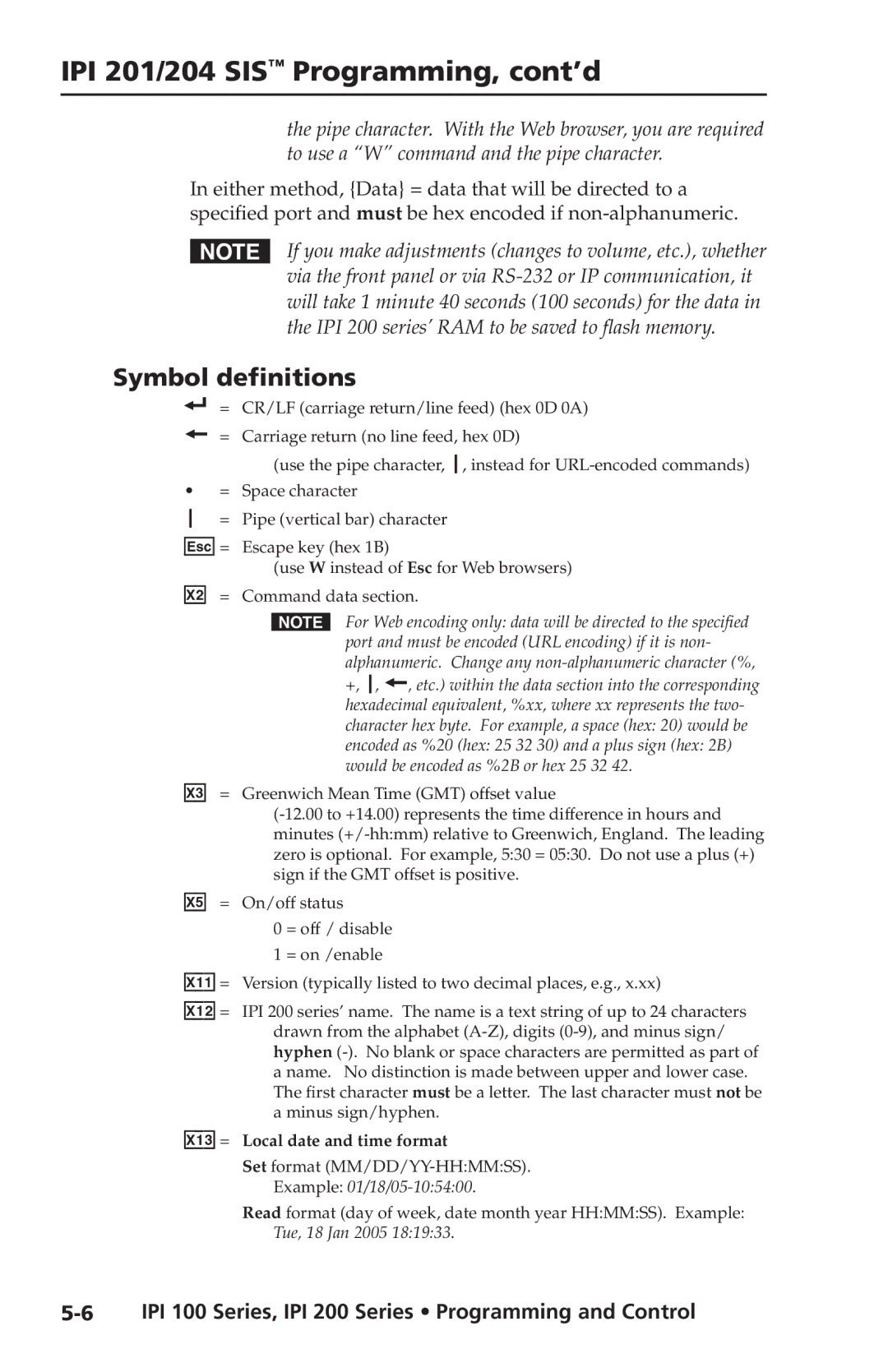IPI 201/204 SIS™ Programming, cont’d
the pipe character. With the Web browser, you are required to use a “W” command and the pipe character.
In either method, {Data} = data that will be directed to a specified port and must be hex encoded if
NIf you make adjustments (changes to volume, etc.), whether via the front panel or via
Symbol definitions
] = CR/LF (carriage return/line feed) (hex 0D 0A)
}= Carriage return (no line feed, hex 0D)
(use the pipe character, , instead for
•= Space character
= Pipe (vertical bar) character
E = Escape key (hex 1B)
(use W instead of Esc for Web browsers) X@ = Command data section.
NFor Web encoding only: data will be directed to the specified port and must be encoded (URL encoding) if it is non-
alphanumeric. Change any
X# = Greenwich Mean Time (GMT) offset value
(‑12.00 to +14.00) represents the time difference in hours and minutes
X% = On/off status
0 = off / disable
1 = on /enable
X1!= Version (typically listed to two decimal places, e.g., x.xx)
X1@= IPI 200 series’ name. The name is a text string of up to 24 characters drawn from the alphabet
X1#= Local date and time format
Set format
Read format (day of week, date month year HH:MM:SS). Example: Tue, 18 Jan 2005 18:19:33.
